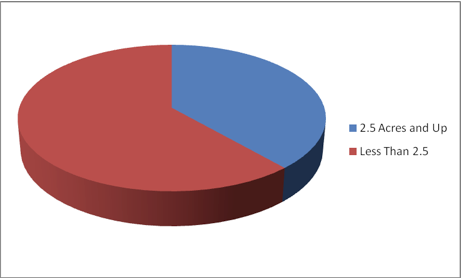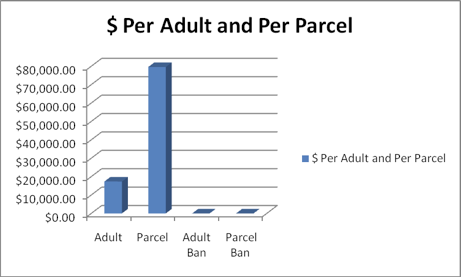Relevant sections of the New York State Constitution
New York State Constitution
Article I, Section 7: “§7. (a) Private property shall not be taken for public use without just compensation.”
Article III, Section 17 (limiting the Legislature’s power to enact for localities): “§17. The legislature shall not pass a private or local bill in any of the following cases:
Changing the names of persons.
Laying out, opening, altering, working or discontinuing roads, highways or alleys, or for draining swamps or other low lands. Locating or changing county seats.
Providing for changes of venue in civil or criminal cases.
Incorporating villages.
Providing for election of members of boards of supervisors.
Selecting, drawing, summoning or empaneling grand or petit jurors.
Regulating the rate of interest on money.
The opening and conducting of elections or designating places of voting.
Creating, increasing or decreasing fees, percentages or allowances of public officers, during the term for which said officers are elected or appointed.
Granting to any corporation, association or individual the right to lay down railroad tracks.
Granting to any private corporation, association or individual any exclusive privilege, immunity or franchise whatever.
Granting to any person, association, firm or corporation, an exemption from taxation on real or personal property.
Providing for the building of bridges, except over the waters forming a part of the boundaries of the state, by other than a municipal or other public corporation or a public agency of the state. (Formerly §18. Renumbered and amended by Constitutional Convention of 1938 and approved by vote of the people November 8, 1938; further amended by vote of the people November 3, 1964.)
Article VIII, Section 12: “It shall be the duty of the legislature, subject to the provisions of this constitution, to restrict the power of taxation, assessment, borrowing money, contracting indebtedness, and loaning the credit of counties, cities, towns and villages, so as to prevent abuses in taxation and assessments and in contracting of indebtedness by them. Nothing in this article shall be construed to prevent the legislature from further restricting the powers herein specified of any county, city, town, village or school district to contract indebtedness or to levy taxes on real estate. The legislature shall not, however, restrict the power to levy taxes on real estate for the payment of interest on or principal of indebtedness theretofore contracted. (New. Adopted by Constitutional Convention of 1938 and approved by vote of the people November 8, 1938. Amended by vote of the people November 5, 1963.)
Article 9, Sections 1 through 3 (in relevant part): “Section 1. Effective local self-government and intergovernmental cooperation are purposes of the people of the state. In furtherance thereof, local governments shall have the following rights, powers, privileges and immunities in addition to those granted by other provisions of this constitution:
(a) Every local government, except a county wholly included within a city, shall have a legislative body elective by the people thereof. Every local government shall have power to adopt local laws as provided by this article.
(e) Local governments shall have power to take by eminent domain private property within their boundaries for public use together with excess land or property but no more than is sufficient to provide for appropriate disposition or use of land or property which abuts on that necessary for such public use, and to sell or lease that not devoted to such use. The legislature may authorize and regulate the exercise of the power of eminent domain and excess condemnation by a local government outside its boundaries.
§2. (a) The legislature shall provide for the creation and organization of local governments in such manner as shall secure to them the rights, powers, privileges and immunities granted to them by this constitution.
(b) Subject to the bill of rights of local governments and other applicable provisions of this constitution, the legislature:
(l) Shall enact, and may from time to time amend, a statute of local governments granting to local governments powers including but not limited to those of local legislation and administration in addition to the powers vested in them by this article. A power granted in such statute may be repealed, diminished, impaired or suspended only by enactment of a statute by the legislature with the approval of the governor at its regular session in one calendar year and the re-enactment and approval of such statute in the following calendar year.
(2) Shall have the power to act in relation to the property, affairs or government of any local government only by general law, or by special law only (a) on request of two-thirds of the total membership of its legislative body or on request of its chief executive officer concurred in by a majority of such membership, or (b) except in the case of the city of New York, on certificate of necessity from the governor reciting facts which in the judgment of the governor constitute an emergency requiring enactment of such law and, in such latter case, with the concurrence of two-thirds of the members elected to each house of the legislature.
(3) Shall have the power to confer on local governments powers not relating to their property, affairs or government including but not limited to those of local legislation and administration, in addition to those otherwise granted by or pursuant to this article, and to withdraw or restrict such additional powers.
(c) In addition to powers granted in the statute of local governments or any other law, (i) every local government shall have power to adopt and amend local laws not inconsistent with the provisions of this constitution or any general law relating to its property, affairs or government and, (ii) every local government shall have power to adopt and amend local laws not inconsistent with the provisions of this constitution or any general law relating to the following subjects, whether or not they relate to the property, affairs or government of such local government, except to the extent that the legislature shall restrict the adoption of such a local law relating to other than the property, affairs or government of such local government:
(l) The powers, duties, qualifications, number, mode of selection and removal, terms of office, compensation, hours of work, protection, welfare and safety of its officers and employees, except that cities and towns shall not have such power with respect to members of the legislative body of the county in their capacities as county officers.
(6) The acquisition, care, management and use of its highways, roads, streets, avenues and property.
(8) The levy, collection and administration of local taxes authorized by the legislature and of assessments for local improvements, consistent with laws enacted by the legislature.
(10) The government, protection, order, conduct, safety, health and well-being of persons or property therein.
(d) Except in the case of a transfer of functions under an alternative form of county government, a local government shall not have power to adopt local laws which impair the powers of any other local government.
§3. (a) Except as expressly provided, nothing in this article shall restrict or impair any power of the legislature in relation to:
(3) Matters other than the property, affairs or government of a local government.
Article XVI, Sections 1 and 2, “Any laws which delegate the taxing power shall specify the types of taxes which may be imposed thereunder and provide for their review.”
Section 2. “The legislature shall provide for the supervision, review and equalization of assessments for purposes of taxation. Assessments shall in no case exceed full value.”
- Log in to post comments






